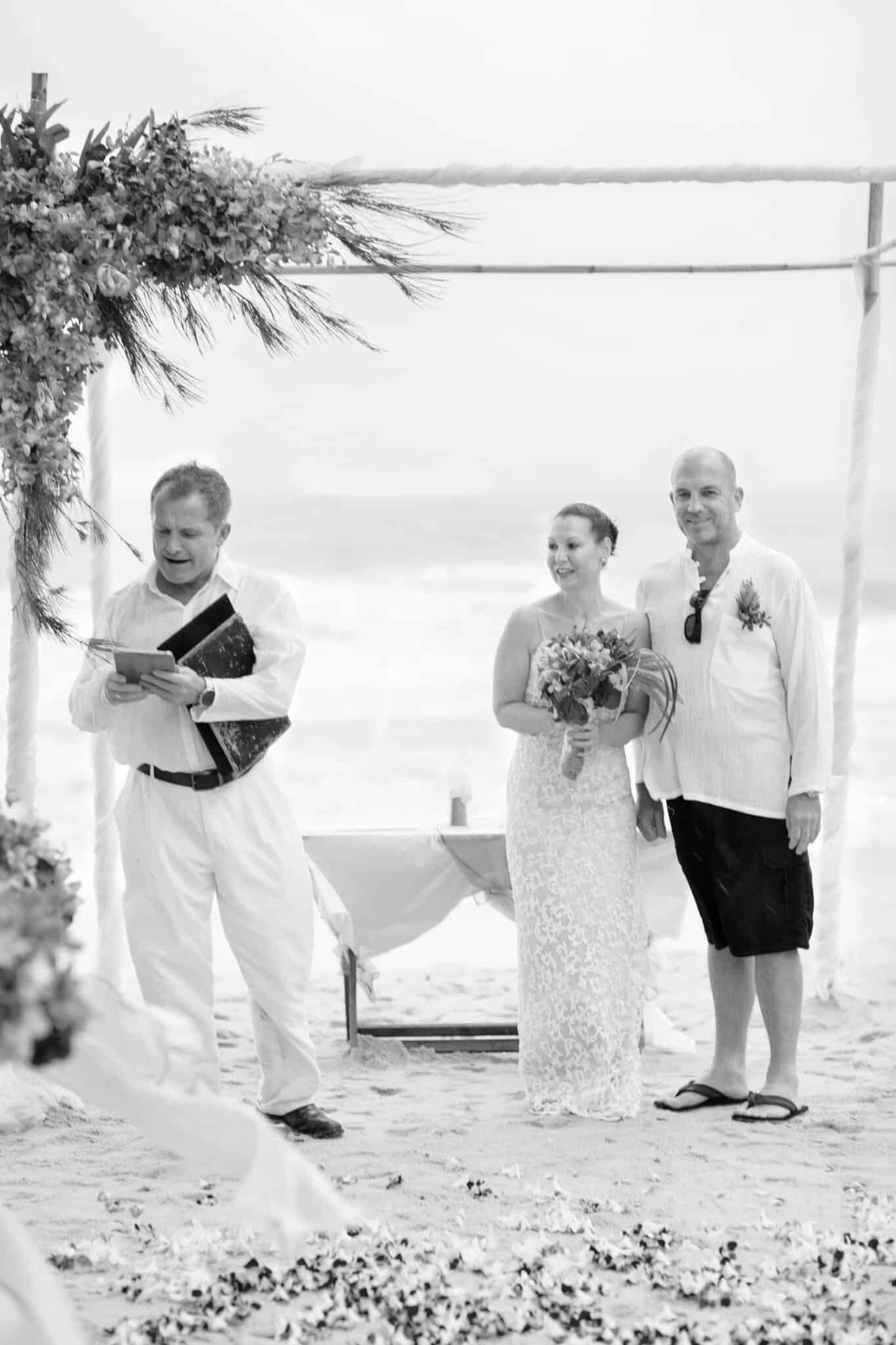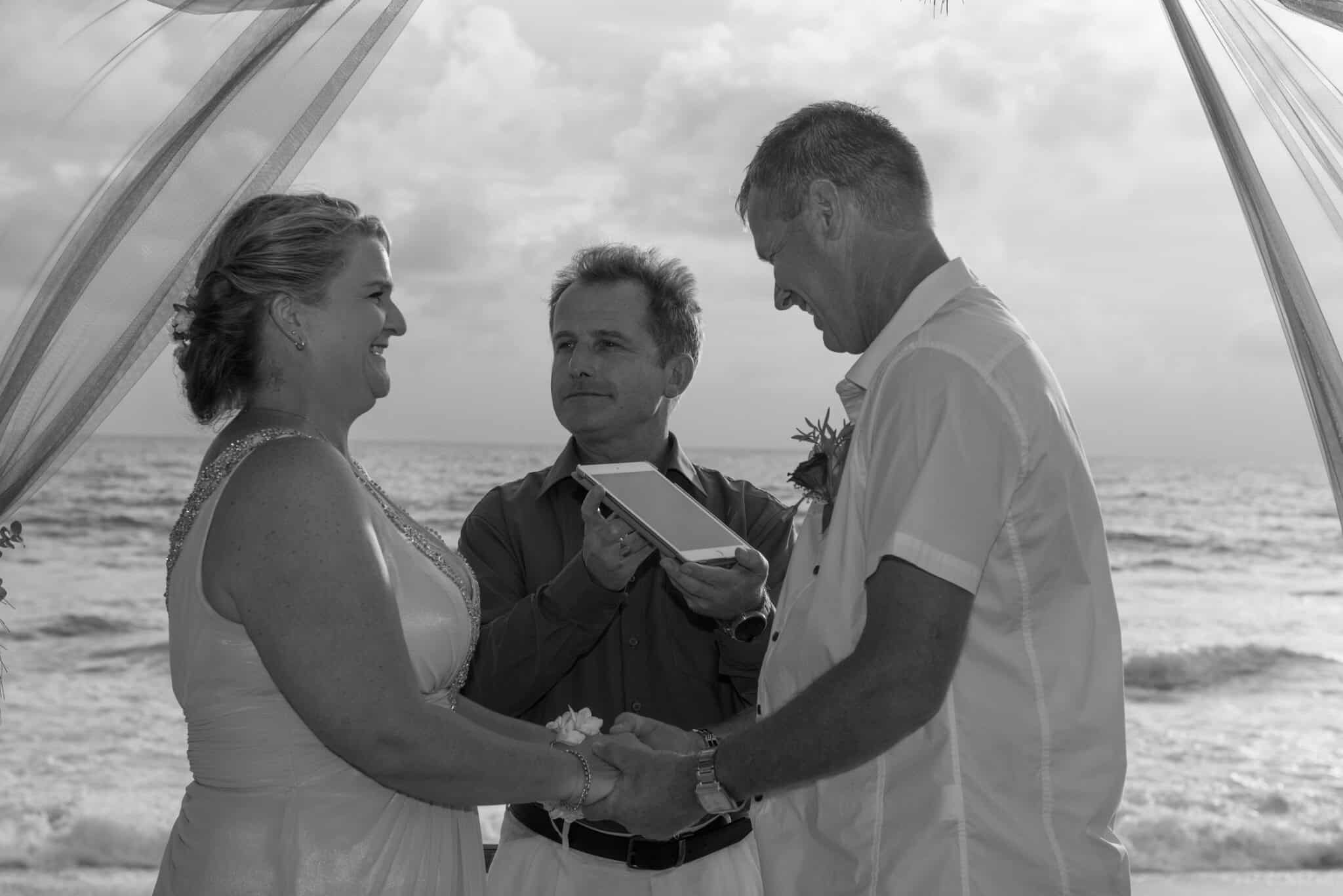Wedding Officiant – Wedding Ceremony
Wedding officiant – Wedding Ceremony. What is the role of a wedding officiant in a traditional wedding ceremony. The tradition of a wedding officiant in a wedding ceremony started long ago. Each country and many states, counties, provinces, and districts have requirements for what is considered a legal marriage.
Marriage is the most important event of our adult life, which needs both social and legal acceptance to bind this unique relationship. Hence, it was universally decided from ancient times that the wedding ceremony should be led by a wedding officiant. In the beginning, it was agreed that wedding officiant and wedding ceremony should not be performed by someone from the circle of family and friends of the bride and groom. The wedding officiant performing the wedding ceremony must have the authority of presiding marriage ceremonies and be legally recognized to perform the rite of marriage.
A wedding officiant is someone who officiates (i.e. leads) at a service or ceremony. Religious Officiants are usually ordained by a religious denomination as members of the clergy. Some officiants work within congregations in some denominations and for specified ceremonies (e.g. funerals), as non-ordained members on the clergy team. Clergy / Officiants differ from Chaplains in that the clergy serve the members of their congregation, while Chaplains are usually employed by an institution such as the military, a hospital or other health care facility, etc. Secular Officiants include Civil Celebrants, Humanist Society appointed officiants, Justices of the Peace, marriage commissioners, notaries, and other persons empowered by law to perform legal marriage ceremonies. Many secular celebrants / officiants conduct the whole range of ceremonies which mark the milestones of human life. Modern tradition allows the bride and groom to choose who and where they would like to be married
As per the law of most of the countries, all the marriages should be legally registered; it is a procedure that is generally termed as civil marriage and it is a simple wedding ceremony, presided and recorded by an authorized government official who signs the marriage license of the couple, also bearing the signatures of at least two more witnesses for making a particular marriage legally valid. The civil marriage in a particular country complies with the rules of that land regarding marriage of an adult couple. The written consent and signature of a legally recognized wedding officiant on a marriage license implies that the marriage is officially bound by all the government rules set for marriage in a particular state, like the legal marriageable age for the bride and groom, their present single marital status and other wedding laws that may sometimes differ from state to state. Usually a professional marriage register or a person holding a respectable government position, like a judge or a naval captain is seen to be acting as a wedding officiant in most civil marriages. A civil marriage can be conducted anywhere according to the choice of the would-be couple, either at the office of the wedding officiant or at a venue selected jointly by their families. Civil marriage can also be performed by clergy if their denomination allows them to perform marriages outside of the church.
Apart from civil marriage, many people opt for a religious wedding ceremony, where the procedures of the wedding ceremony are most likely to be conducted by an ordained officiant, who acts as the wedding officiant or wedding celebrant. Christian weddings are led by the clergymen of the Christian churches or the priests of other religions conduct the weddings of the couples belonging to their respective religions. Rabbis conduct weddings ceremonies for Jewish weddings. In some religions, the religious marriage ceremony needs to be held at their place of worship, so that it can involve God’s blessings on the newly wedded couple. Other religions allow their clergy to act on behalf of the church and proclaim God’s blessing on the new wedded couple even when the ceremony is not held in the church.
Wedding Officiant are a civil officer who performs acts of marriage, civil union or commitment. Their main responsibility is to receive and witness the consent of the intended spouses and to ensure the legal formalities, and hence the validity of the marriage or civil union, are observed. Wedding Officiant’s duties and responsibilities, as well as who may be an officiant vary among jurisdictions. Each state has legal requirements and in some states counties have additional legal requirement on who can perform the rite of marriage. In the State of Arizona in Maricopa county any ordained clergy, anyone authorized by their church such as deacons, elders or other officials who have been given approval to perform the rite of marriage are recognized by the State of Arizona. Maricopa County also allows Judges, Justice of the Peace, and Magistrates. More information on marriage license requirements at this link Maricopa. For more information on who can legally perform the rite of marriage in Arizona click Arizona Marriage Law. For more information on U S Marriage Laws click here marriage laws .
AZ Ceremony Wedding Officiants and Wedding Ministers are licensed to perform the right of marriage. If you are looking for a wedding officiant in Mesa, Gilbert, Tempe, Apache Junction, Gold Canyon, Phoenix, Scottsdale, Fountain Hills, AZ Ceremony would love to be part of your special day and help you create your dream wedding ceremony.
For a complementary planning consultation, please call us at 480-269-3219 or email info@azceremony.
or use the form below:
[formcraft id=’1′]
wedding officiant Mesa, Wedding Officiant Phoenix, wedding officiant Gilbert, wedding officiant Tempe, wedding officiant Apache Junction, wedding officiant Gold Canyon, wedding officiant Scottsdale, wedding officiant Fountain Hills
The post Wedding Officiant – Wedding Ceremony appeared first on AZ Ceremony Wedding Officiant.
This content was originally published here.

